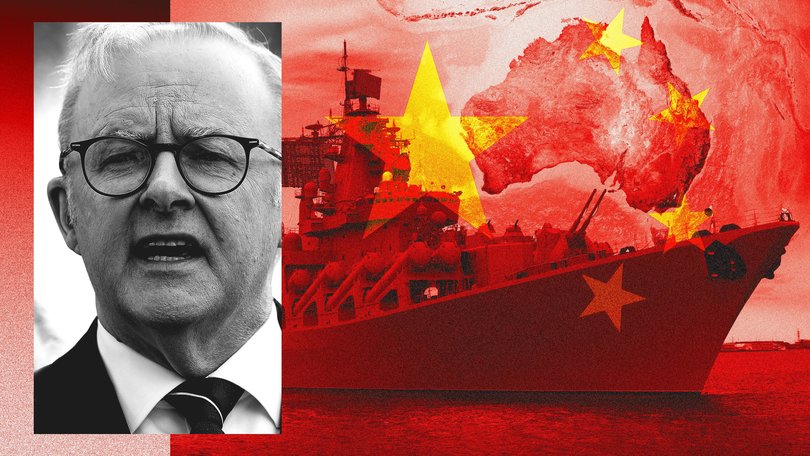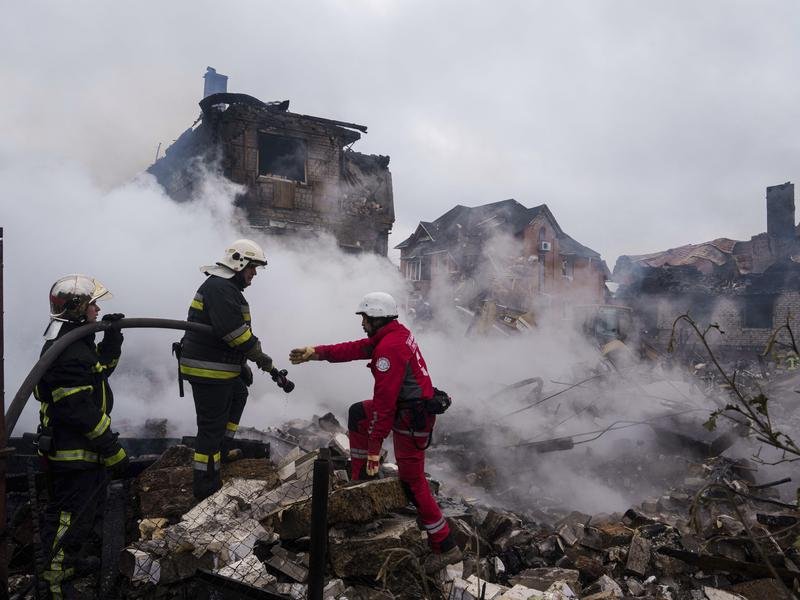Anthony Albanese’s flippant dismissal of defence warning weakens Australia
AARON PATRICK: The Prime Minister had an opportunity to make a meaningful contribution to the debate over Australia’s readiness for war. Instead he reverted to personal criticism.

Anthony Albanese had an opportunity Thursday to make a thoughtful contribution to the debate over Australia’s readiness for war.
Instead, the Prime Minister reverted to personality politics.
One of the nation’s leading defence-policy think tanks, the Australian Strategic Policy Institute, published on Thursday morning the latest edition of its annual review of the defence budget.
Sign up to The Nightly's newsletters.
Get the first look at the digital newspaper, curated daily stories and breaking headlines delivered to your inbox.
By continuing you agree to our Terms and Privacy Policy.The most-comprehensive analysis of defence spending available, the 154-page report is worrying reading for anyone concerned about Australia’s defence.
Missiles and shipping
Lead author Marc Ablong, a former deputy secretary of the Home Affairs Department, argues spending is not rising fast enough to meet the threats to Australia, including a China that looks like it is preparing to invade Taiwan.
Long-range missiles needed to defend the Australian mainland and protect commercial shipping across the Pacific will arrive too far in the future, the report argues. So too Australia’s nuclear-powered submarines, which are not scheduled to arrive until the early 2030s.
“While the Australian Government claims to have made a ‘generational investment in Australia’s Defence’, that investment has been put off for another generation,” the report says.
Warning signal
The think tank’s biggest funder is the Defence Department. While it has a natural bias towards a strong defence, its views often reflect the senior ranks of the Australian Defence Force.
In this sense, the report may be a warning signal from the generals, admirals and air marshals with intimate knowledge of a troubled world.

There is bipartisan agreement that defence spending needs to rise. There are disagreements about how the money should be spent. The ASPI report argues the circumnavigation of Australia in March by two warships in the Chinese navy - the world’s largest - demonstrates the need for greater protection for Australia’s cities.
“A lot of politicians admit we haven’t spent enough but they don’t actually look at what we need and what our strategic risks are and how to manage them,” said Neil James, the executive director of the Australian Defence Association, which advocates for a strong military.
Dismissal
Mr Albanese’s response to the ASPI report was to dismiss it as a work of partisanship.
“I think it’s predictable, frankly,” he said. “(ASPI is) run by people who’ve been in a position to make a difference in the past as part of former governments.”
The Labor leader was presumably referring to ASPI’s executive director, Justin Bassi, a cyber-intelligence specialist who worked as Liberal Prime Minister Malcolm Turnbull’s national security adviser over his whole time in office. Mr Bassi contributed to the budget report.
In Australia’s relatively small national-security field, it is common for experts to work in ministerial offices. The experience helps their careers and the government.
Mr Albanese’s flippant criticism of ASPI’s warnings may make other experts reluctant to point out government mistakes, which could weaken Australia’s defence.

